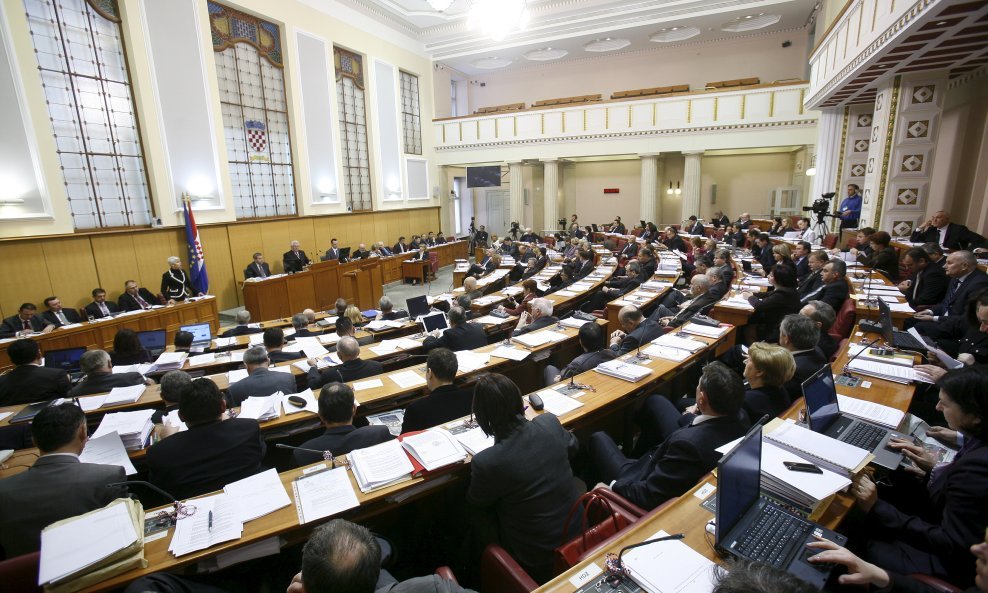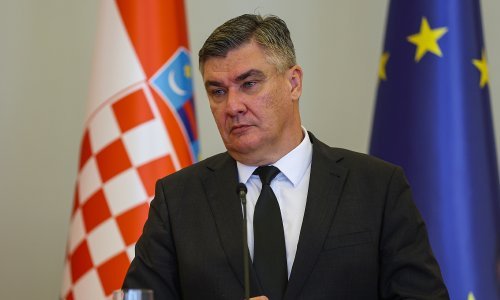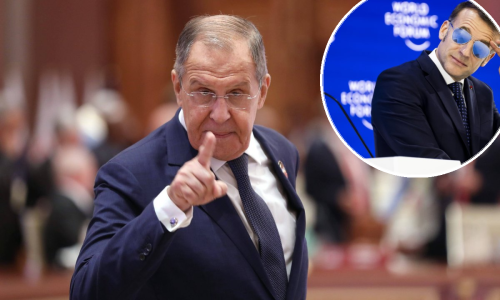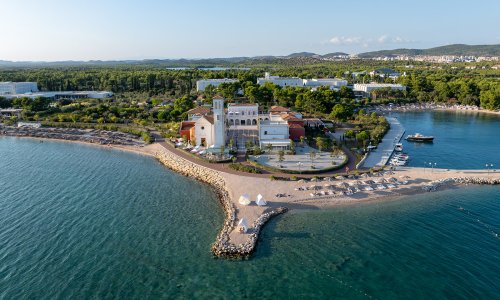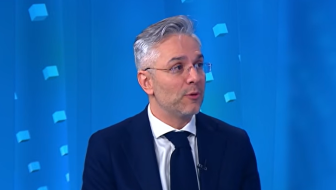The head of the strongest opposition party, the Social Democrats (SDP), Zoran Milanovic, and the chairman of the parliamentary Committee on the Constitution, Vladimir Seks of the ruling Croatian Democratic Union (HDZ), said on Friday that the governing coalition and the opposition would continue talks on the last remaining item relating to constitutional amendment on which no agreement had been reached -- the one concerning the voting of Croatian citizens outside Croatia.
Addressing reporters after a meeting of Parliament, Milanovic said that the SDP was seeking a solution that would guarantee the transparent conduct of elections outside Croatia. He added that the opposition parties wanted this "traumatic issue" to be dealt with in a way that would be acceptable "more or less to everyone."
Milanovic appealed to the HDZ to resume talks on the matter. "This is an invitation for talks. There can be no agreement without talks," the SDP leader said.
When asked by reporters when he would respond to the invitation to resume talks, Seks said he believed it would happen already next week, expressing the hope that a compromise solution would be reached.
Seks said he was willing to accept the offer from President Ivo Josipovic to mediate between the ruling coalition and the opposition in efforts to reach a compromise solution on the voting of the diaspora.
"President Josipovic has offered his good-will services and I hope that the chief players will accept his invitation. I'm confident that we will settle this last dispute by compromise, to the satisfaction of all citizens of Croatia," Seks said.
When asked if he supported the idea that Josipovic should act as an arbiter between the government and the opposition, Seks replied: "Not an arbiter, but a mediator."
The SDP insists that Croats living abroad should vote only in Croatian diplomatic and consular missions, while according to Seks the HDZ maintains that the issue should be settled by electoral legislation rather than the Constitution.
"There is still a long way to go before a final decision on amending the Constitution is reached," Seks said, adding that he expected that a final decision would be reached "optimistically by mid-July and less optimistically by mid-September."



